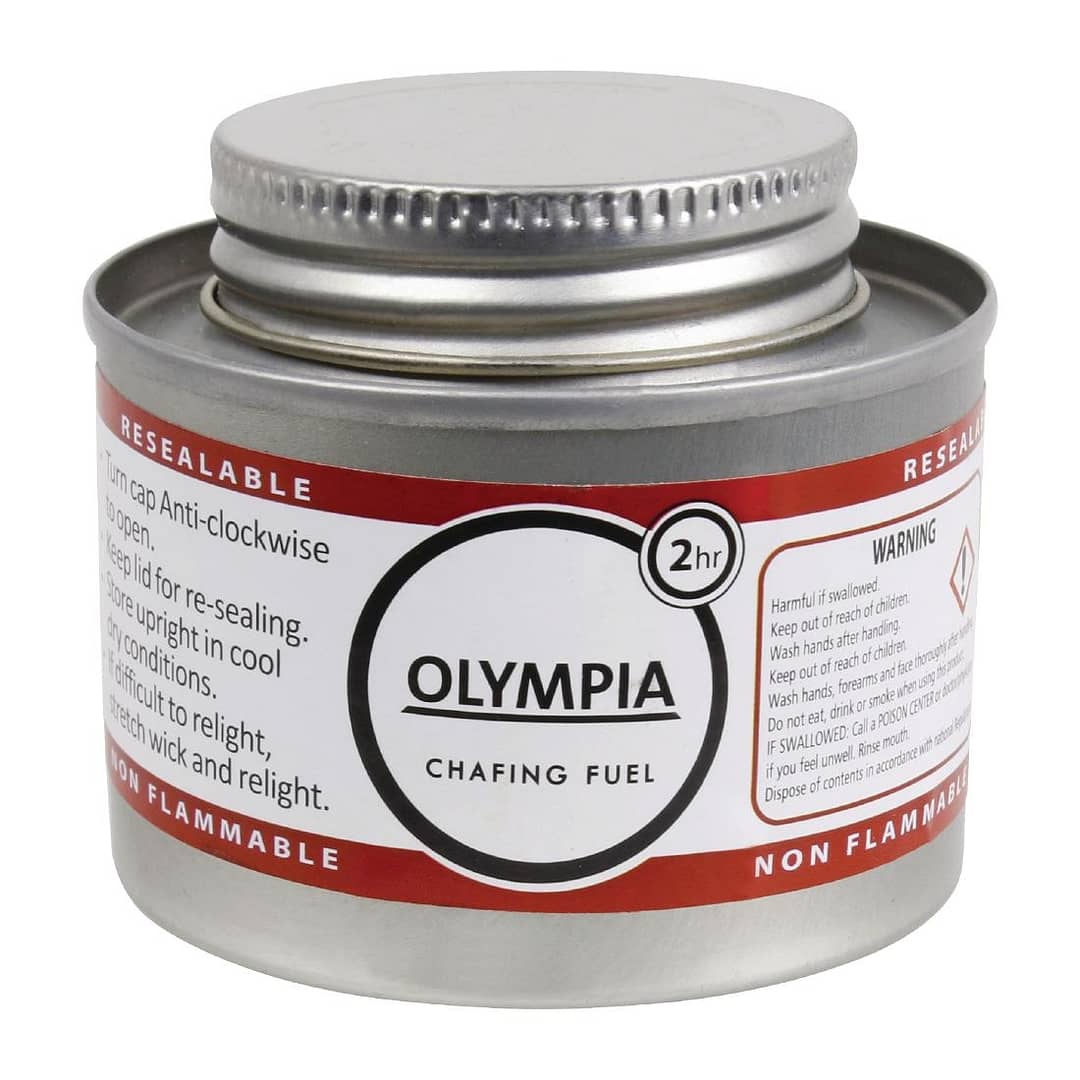Long-Lasting Chafing Dish Fuel for Catering Events
Product Name: Olympia Liquid Chafing Fuel 2 Hour, 12x 2 Hour Tins, CB733
Product Description: Discover the safer option for your chafing needs with the 2-hour Olympia Liquid Chafing Fuel, available in a set of 12x 2-hour tins (CB733). Its innovative design and safety features, including non-hazardous fuel and a relightable wick, make it an ideal choice for your catering requirements.
Key Features:
- Enhanced Safety: Prioritize safety with non-hazardous fuel and an internal reservoir to prevent spillage.
- Non-Flammable: The fuel is non-flammable without the wick, ensuring added safety in commercial settings.
- Non-Combustible: With no flash point, it reduces the risk of combustion.
- Visible Flame: A visible flame enhances safety and minimizes the chance of accidental injuries.
- Cool-to-Touch: The container remains cool even when alight, reducing the risk of burns.
- Relightable Wick: Achieve 100% fuel use with the relightable wick.
- No Evaporation: The fuel doesn’t evaporate when left open, providing efficient use.
- Non-Spill and Non-Drip: Move the container without spills or drips for a safer working environment.
Specifications:
- Material: Stainless Steel
- Weight: 120g per tin
Choose the 2-hour Olympia Liquid Chafing Fuel (CB733) for a safer, more efficient option for your catering needs. The set includes 12x 2-hour tins for your convenience.
Frequently Asked Questions
How do I properly install and use Olympia Chafing Liquid Fuel?
Ensure the chafing dish is on a level, heat-resistant surface, remove the cap of the fuel can, and place it in the fuel holder beneath the dish. Light the fuel carefully with a long match or lighter.
Is the Olympia Chafing Liquid Fuel compatible with all types of chafing dishes?
Yes, it is designed for universal compatibility with any chafing dish that accommodates liquid fuel cans. Always check the dish’s specifications for optimal performance.
What maintenance is required for Olympia Chafing Liquid Fuel?
No specific maintenance is required for the fuel itself. However, always store unopened fuel cans in a cool, dry place and handle with care to avoid spills.


















